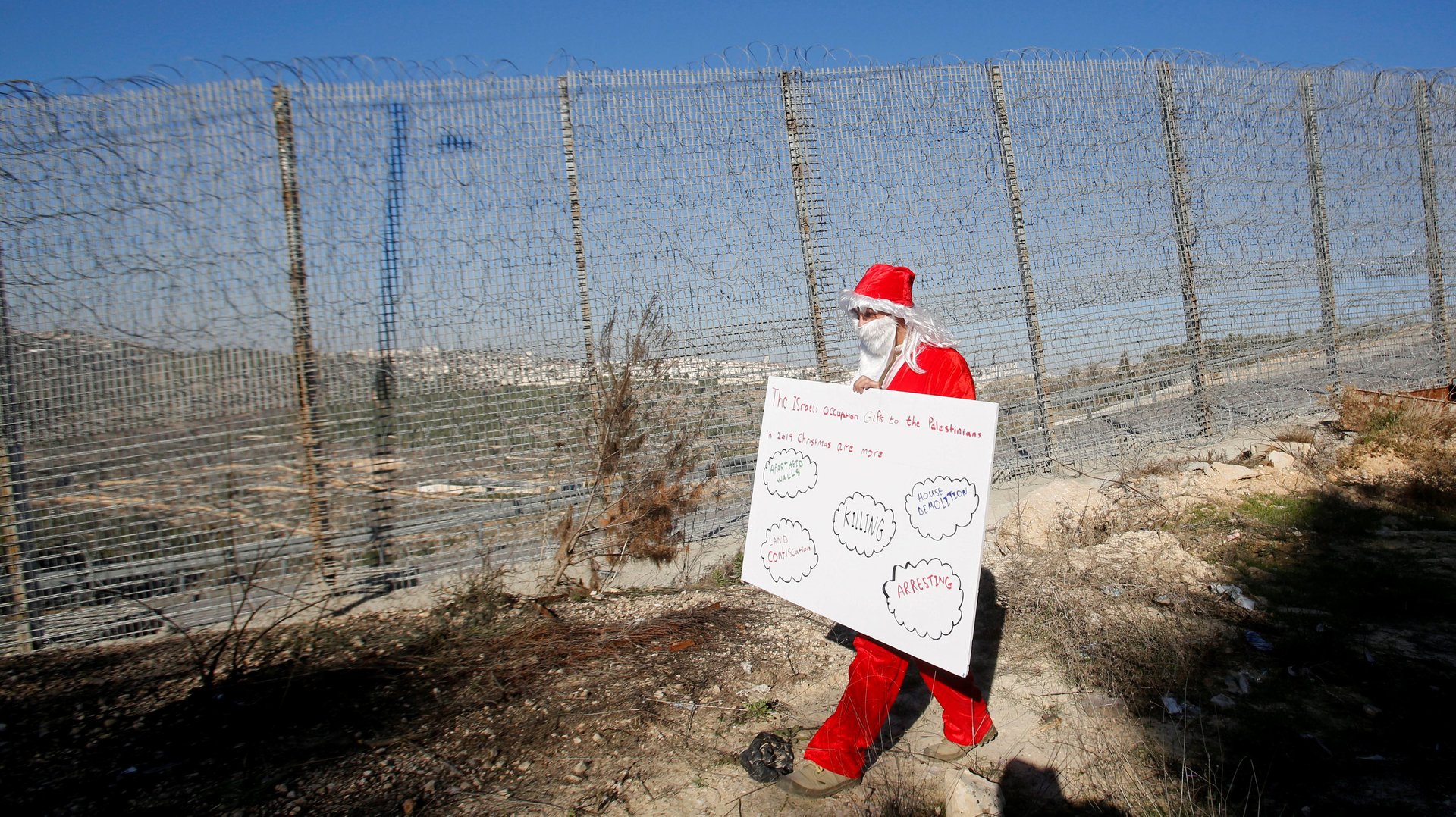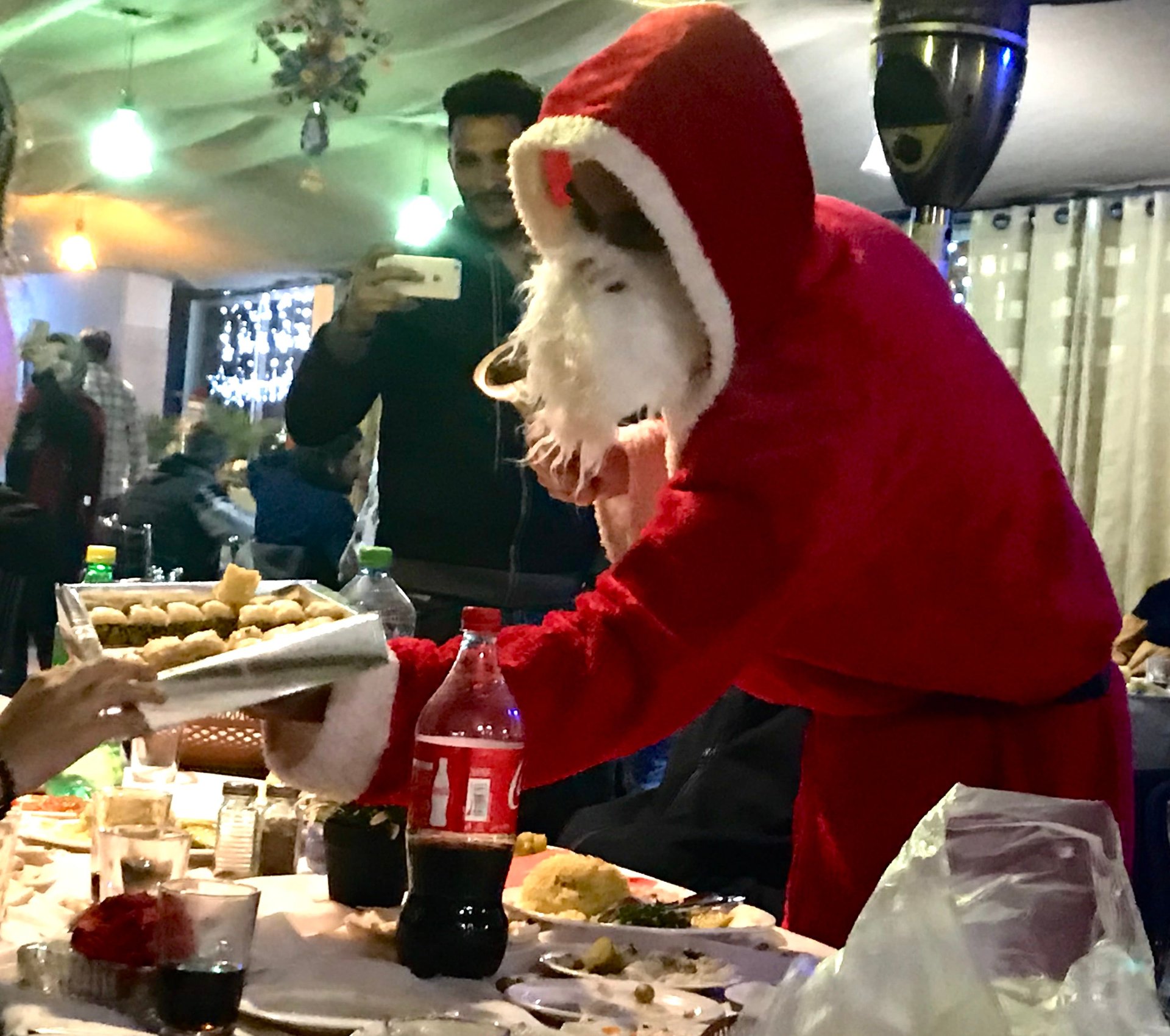In Bethlehem, a Christmas story with a modern message—and Jingle Bells in Arabic
At the newly-renovated Church of the Nativity where, the story goes, Jesus, the Prince of Peace was born, pilgrims from around the world are gathering for midnight mass.


At the newly-renovated Church of the Nativity where, the story goes, Jesus, the Prince of Peace was born, pilgrims from around the world are gathering for midnight mass.
But for some, the real celebration of peace happened last week, a 10-minute drive away from the church, in as humble a place as the stable where Christ was born.
At Canary Restaurant in Wadi Shaheen, in the Palestinian city of Bethlehem, a few hundred Israelis and Palestinians gathered to break bread together. Singing Jingle Bells in Arabic, and with Santa Claus passing out baklava, an unusual initiative by a multi-faith grassroots movement called the Abrahamic Reunion got underway.

“We’re working from the bottom up to create a knowledge of ‘the other’,” Abrahamic Reunion chairman and co-founder David Less, a meditation teacher originally from New York, told Quartz. “The Abrahamic Reunion began as a group of religious leaders who believed in peaceful coexistence between Israel and Palestine. It has grown and has a platform to educate people of the four religions that much of their origin and culture is the same or similar and so we use religion as a way of teaching peace instead of a way of dividing people.”
“We have people here from Jericho, Hebron, Ramallah, Nablus,” said Mohamad Jamous, director of the Abrahamic Reunion Palestine. “I could have got a thousand people to this event but resources were tight.”
The idea of bringing together Jews, Muslims, Christians, and Druze in the Holy Land to meet, eat, and talk is similar to initiatives in Northern Ireland, where decades of political conflict led Catholics and Protestants to lead separate lives.
“I like this idea of meeting people of other faiths,” said Saleem Khleif, a Palestinian Muslim who owns a toilet-paper factory in Bethlehem, as he tapped his feet to a medley of Christmas carols belted out by an electronic keyboard and saxophone. “We have to do something to bring about peace,” he added, “the economy is in such poor shape, people are suffering.”
Though Bethlehem is a huge draw at Christmas—the city’s mayor says 1.4 million visitors are expected this year, a 20% increase on 2018—it has one of the highest rates of unemployment in the West Bank.
Restrictions imposed by Israel make it difficult for Palestinians to leave the West Bank. And Israel forbids its citizens from visiting the Palestinian Territories. A separation barrier between Israel and the Palestinian Territories started to go up in 2002. Israel says the wall is necessary to prevent attacks, but it is thought to have created “a damaging distance” between Israelis and Palestinians.
“We have to be one unit, we have to take this message back to our neighborhoods,” Sheik Raafat, a Muslim cleric from Nablus told the diners gathered in the Canary Restaurant. Greek Orthodox priest Issa Thaljieh of the Church of the Nativity also called for different faith communities to get to know each other.
It was a Christmas message appropriate for 2019, a year of deepening divisions. And appropriately, it was delivered not far from the oldest Christian church in the world.